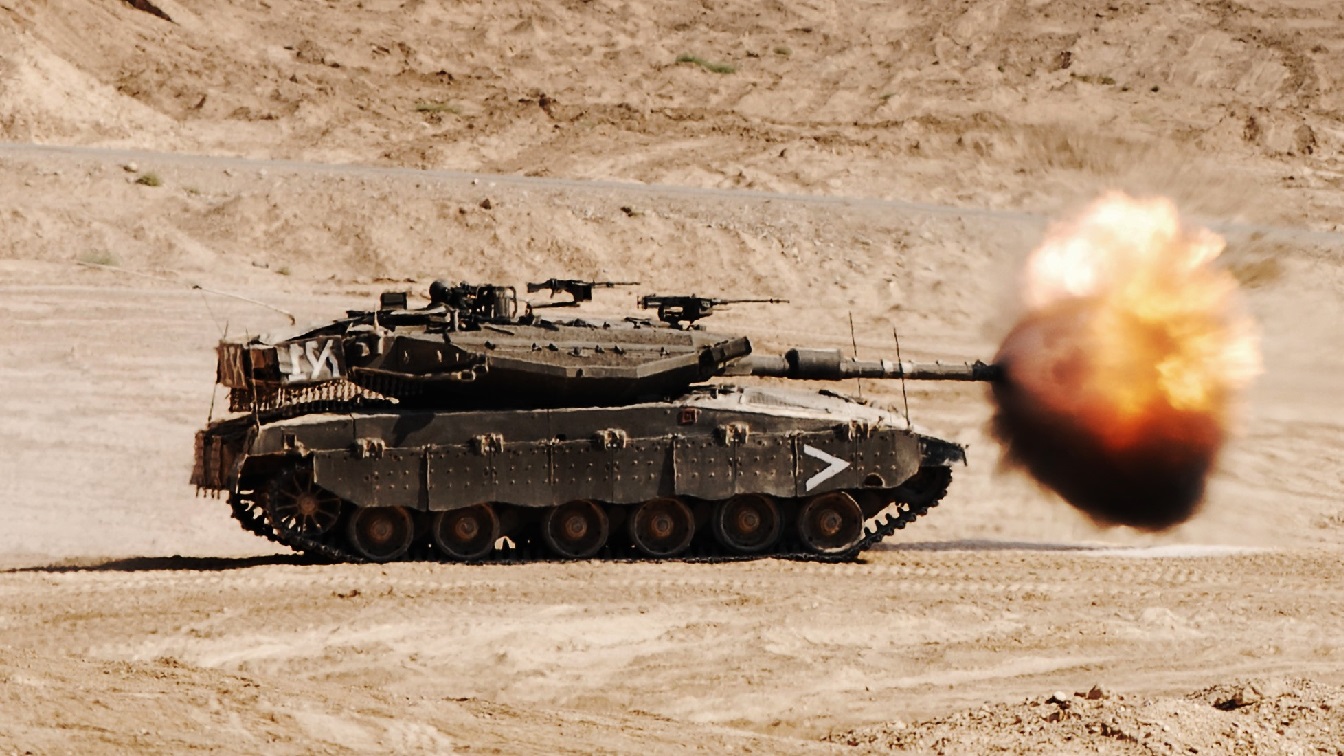Since the onset of Russia’s invasion, the U.S. and other North Atlantic Treaty Organization (NATO) members have supplied scores of advanced weaponry to aid Kyiv’s defensive efforts. In addition to anti-tank weapons and unmanned aerial vehicles (UAVs), infantry fighting vehicles and main battle tanks have been delivered to the front lines of the war over the last eighteen months.
While Western aid has largely supplemented Kyiv’s stockpiles, Moscow has procured supplies from the Islamic Republic of Iran.
Specifically, Tehran has delivered scores of lethal drones to Russian Forces, which have been used to target Ukraine’s critical infrastructure, residential buildings, military personnel, and other assets.
Industry experts have debated about how the Kremlin is positioned to repay Tehran for these critical drone deliveries. While many analysts predict that Iran will ultimately receive Russia’s S-35 fighter jets as reimbursement for the drones, other possibilities do exist. Israeli officials are concerned that Moscow could collect captured or abandoned Western weaponry from the Ukraine invasion to deliver to its rogue ally.
Advanced Weaponry in Kyiv Could End Up in Iran
Last week, a high-ranking Israeli Defense Forces (IDF) commander reportedly voiced concerns surrounding the inevitability of the advanced weaponry being delivered to Kyiv ending up in the hands of Iran.
According to Newsweek, “The Israeli commander, who spoke on condition of anonymity due to the sensitivity of the topic, said the diversion of weapons, such as the Javelin shoulder-fired anti-tank missile system, was being monitored from paramilitary forces operating on both sides of the Russia-Ukraine war.”
Iran’s network of regional proxy groups, including Hezbollah, Hamas, and the Palestinian Islamic Jihad, are supplied weapons from Tehran vis-à-vis illicit smuggling. Israeli Prime Minister Benjamin Netanyahu previously stated that Western anti-tank weapons were discovered at Israel’s borders, emphasizing the Jewish state’s concerns.
What else is holding Israel back from providing more direct lethal aid to Kyiv?
Israel’s warnings regarding weapons diversions coincide with increased pressure on the country to better support Ukraine’s defense efforts. Ukrainian president Volodymyr Zelensky has been particularly critical of the Jewish state since the onset of the war, noting the country’s “complete inaction” in providing Kyiv with defensive assistance. One reason the Israeli government has been hesitant to supply Ukrainian forces with its own sophisticated weapons stockpiles is due to the significant risk that those weapons could end up in Iranian hands.
Another major sticking point preventing the Jewish state from delivering more weaponry to Kyiv is its ongoing operations in Syria. While Israel has provided humanitarian aid and emergency equipment to Kyiv, the country has stopped short of delivering lethal military aid to Ukraine. Since Moscow controls much of the airspace over Syria, the Israeli government does not want to piss off the Kremlin since it could impact the IAF’s targeting operations against Iranian assets in the civil war-torn country. Iran often uses smuggling routes in Syria to supply its proxy groups that border Israel, including the Lebanon-based Hezbollah.
In recent months, Iran has inched closer to becoming a nuclear threshold state and tensions between Tehran and Tel Aviv have escalated. Maintaining leverage with Russia over Syria is therefore paramount to Israel’s own defense needs, which officials are clearly prioritizing over providing Kyiv with more lethal weaponry.
Maya Carlin, a Senior Editor for 19FortyFive, is an analyst with the Center for Security Policy and a former Anna Sobol Levy Fellow at IDC Herzliya in Israel. She has by-lines in many publications, including The National Interest, Jerusalem Post, and Times of Israel. You can follow her on Twitter: @MayaCarlin.
From 19FortyFive
A Russian Submarine Accidently ‘Destroyed Itself’
Total Massacre’: Ukraine Footage Shows Russian Cruise Missile Shipment Attacked

